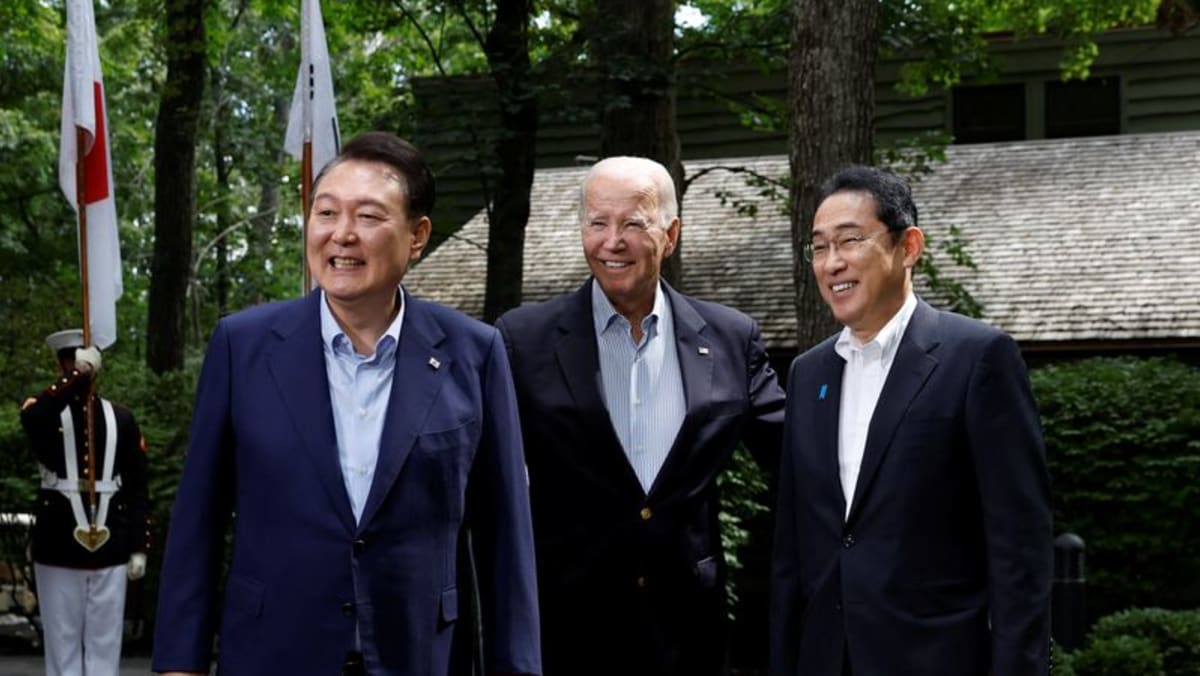
The statement said the three would launch a supply-chain early warning system pilot project to expand information-sharing and fight economic coercion together.
On their response to Russia’s invasion of Ukraine, the leaders agreed to continue supporting Kiev and to maintain strong, coordinated sanctions against Moscow, while also aiming to further curb dependence on Russian energy.
But it was the language on China that stood out as stronger than expected, and which is likely to provoke a response from Beijing, which is a vital trading partner for both Korea and Japan.
“Regarding the dangerous and aggressive actions we recently witnessed by the People’s Republic of China in support of its illegal maritime territorial claims in the South China Sea, we … strongly oppose any attempt to unilaterally change the status quo in the Indo-Pacific waters,” the statement said.

